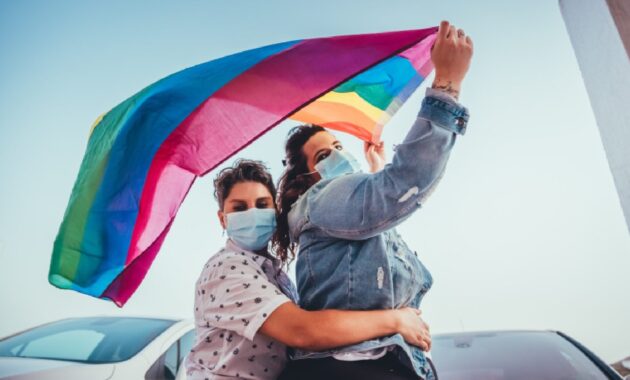It goes without saying that mental health is an essential need for every individual, regardless of their sexual orientation or gender identity. However, for LGBTQIA+ individuals residing in rural or conservative areas, accessing appropriate mental health services can often feel like navigating an intricate maze. It is difficult for them to talk about the issue, let alone get access to mental health coaches.
Dr Chandni Tugnait, M.D. (Alternative Medicines), Psychotherapist, Life Coach, Business Coach, NLP Expert, Healer, Founder and Director of Gateway of Healing, Gurugram, shares some strategies to overcome the barriers faced by the LGBTQIA+ community for mental health care.

Tips to overcome mental health problems for LGBTQIA+ community
1. Breaking the silence
Living in rural or conservative areas can engender a sense of isolation for LGBTQIA+ individuals, compounding the challenges they face in seeking mental health support. The prevalence of prejudice, discrimination and social stigmatization can make it difficult for individuals to openly express their identities and seek help without fear of judgement or backlash. This isolation reinforces the urgent need to bridge the gap and foster inclusive spaces where everyone’s mental health needs can be met.
Also Read: Facing gender bias can impact your mental health! A doctor tells you how to get free from it
2. The healthcare gap
Rural and conservative areas often struggle with a dearth of mental health resources, exacerbating the formidable challenge of accessing care for LGBTQIA+ individuals. The scarcity of specialized mental health professionals with cultural competency in LGBTQIA+ issues can leave many feeling unheard or misunderstood, further deterring them from seeking assistance. Bridging this gap requires targeted efforts to expand mental health infrastructure, training for healthcare providers, and establishing LGBTQIA+ affirmative care networks.
3. Tele-health
A Lifeline for the Underserved- Amidst these barriers, technology emerges as a powerful tool to bridge the geographical divide and increase access to mental health care for LGBTQIA+ individuals in rural or conservative areas. Telehealth services have gained prominence, allowing individuals to connect remotely with mental health professionals. This convenient and confidential approach eliminates geographical constraints and offers a lifeline for those who might otherwise lack support systems in their immediate surroundings. Also, virtual communities can provide valuable emotional support, resources, and guidance.
4. Community support
In the face of adversity, LGBTQIA+ communities have often thrived through resilience, solidarity, and the creation of safe spaces. These community support networks are crucial in extending mental health care to those in need. Peer-led support groups, local LGBTQIA+ organizations and online communities provide platforms for individuals to share experiences, seek guidance, and find solace. Building and expanding these networks can help combat isolation and foster an environment of understanding and acceptance.

5. Advocacy and policy change
Efforts to improve mental health care access for LGBTQIA+ individuals in rural or conservative areas must also include advocacy for policy change. Activism aimed at eradicating discrimination, promoting LGBTQIA+ rights, and increasing funding for mental health programs can help break down systemic barriers and fostering an inclusive society. By engaging in open conversations and challenging stereotypes, we can collectively work towards dismantling the barriers that hinder access to mental health care.
Also Watch:
The path to equitable mental health care for LGBTQIA+ individuals in rural or conservative areas is full of unique challenges. However, we can begin to break down these barriers by fostering dialogue, investing in infrastructure, training healthcare providers, leveraging technology, and advocating for policy changes. Our collective responsibility is to ensure that mental health care is accessible to everyone, irrespective of their sexual orientation or gender identity. Let us work together to create a society that embraces diversity, promotes inclusivity, and offers a helping hand to those in need.
#Pride #Month #LGBTQIA #community #rural #areas #overcome #mental #health #issues
